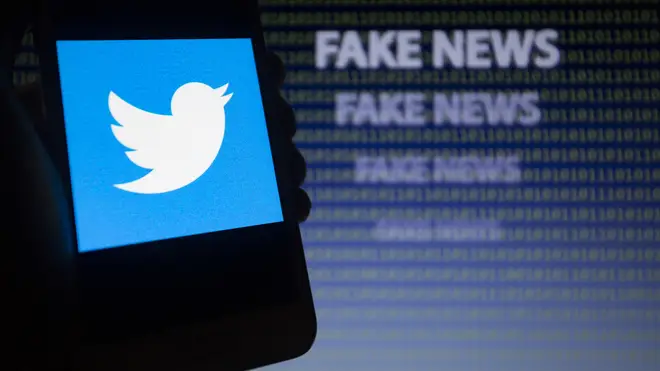
Clare Foges 6pm - 9pm
9 December 2019, 11:14

"Junk news" is on the decline on Twitter but is still reaching huge numbers of people on Facebook, new research shows.
Despite so-called junk news sites posting 9.6 stories per day compared with 38.2 per day from major news organisations, their articles are still more likely to be shared on Facebook.
Research from the Oxford Internet Institute (OII) found that 40 per cent of "junk news" posts provoked "extreme reactions" from Facebook users, whereas mainstream stories only get a moderate response.
However, the research did find that overall levels of fake news were "relatively low" in the run up to the general election.
The OII defines junk news sources as those which "deliberately publish misleading, deceptive or incorrect information purporting to be real news about politics, economics or culture".
It was found that mainstream media articles were more widely shared on Twitter, with links to these making up a third of all shared links.
Less than 2 per cent of links shared on Twitter in the build up to the election were from sources defined as junk news.

Researchers also found that nearly half of junk news outlets are from foreign sources, with most of them based in America, Canada or Germany.
They added that there was "little trace" of known Russian propaganda sources.
The most popular junk stories in the run up to the election have been distorted versions of articles from mainstream news sources.
More than a third of all junk news stories make reference to the mainstream media and political journalists in the headline.
Three quarters of these also make accusations of wrongdoing, bias or lying.
Less than a fifth of junk news focused on party policies.
However, two "notable exceptions" to this were footage of Boris Johnson proposing to strengthen British immigration laws and a video condemning Home Secretary Priti Patel after she claimed poverty was not the fault of the government.
Professor Philip Howard, director of the Oxford Internet Institute, said: "During the 2017 General Election campaign, we found that junk news was much more prominent, but this time around that doesn't seem to be the case."
Nahema Marchal, co-author of the report, said: "What's interesting to note from our analysis is that the most viral stories from junk news sites do not peddle misinformation as such, but often spin the truth in an attempt to discredit the mainstream and established media."